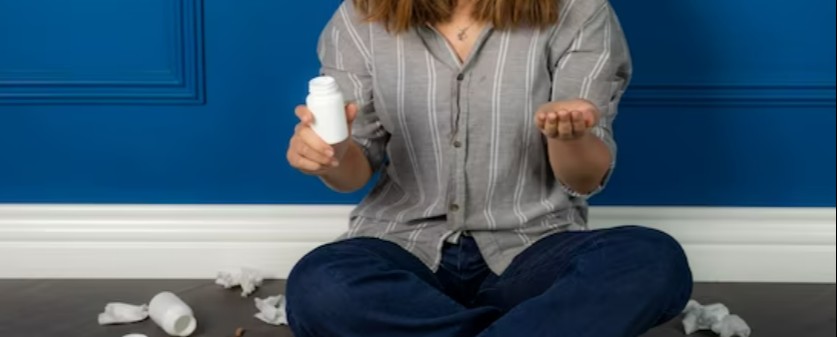
The Beginner's Guide to Understanding Self-Harm

Self-harm is a coping mechanism used to help people deal with overwhelming emotions and difficult situations. Although the term "self-harm" may bring to mind images of cutting and suicide, it's important to remember that self-harm can take many forms. Some common forms of self-harm are: cutting, burning, scratching wounds into your skin, hitting yourself on purpose, pulling out hair or eyelashes, picking at scabs or sores (called excoriation), biting oneself especially one's inner cheeks until they bleed as well as punching objects like trees or walls. Self-harm can also take the form of eating disorders such as anorexia nervosa and bulimia nervosa; compulsive hair pulling for women known as trichotillomania; compulsive skin picking for both men and women called dermatillomania; over exercising; risk taking behaviors such as driving too fast or driving under the influence of alcohol/drugs; reckless spending habits etc.
What is self-harm?
Self-harm is defined as the act of intentionally injuring yourself. While it may be difficult to understand why someone would want to cause themselves harm, self-harm is often a way of coping with overwhelming emotions. It may also be used as a sign of undiagnosed depression or anxiety.
There are many different triggers for self-harm and the reasons vary from person to person. Some people may self-harm because they feel alone, misunderstood or isolated. Others may do it as a way of coping with overwhelming emotions like depression, anxiety or stress and others may do it because they feel out of control in some way. The most common triggers include feelings of being overwhelmed by situations and feelings, such as an argument with somebody close to you or feeling trapped in an unhappy situation where you can’t change things that are making you unhappy.
Is it related to other mental illnesses?
Of course, self-harm is a sign that something deeper is going on in your life. It can be a symptom of other mental illnesses, such as depression or anxiety. You may be experiencing depression or anxiety but not realise it yet because these disorders often go undiagnosed due to their complexity and the stigma surrounding them. Depression and anxiety can also lead to personality disorders like borderline personality disorder (BPD), which are characterised by unstable emotions, impulsive behaviour and difficulty maintaining relationships with others.
If you suspect that you have such an illness, don’t hesitate to seek help from a professional who can diagnose you properly so that they can recommend the treatment options best suited for you.
How do you treat self-harm?
The first step to treating self-harm is to understand that it's not a habit you can simply stop. It's important to realise that there are underlying issues that need to be addressed before one can fully recover from the behaviour. Self-harm is a sign of an underlying problem, like depression or anxiety, and treating those conditions will help lessen the desire or need to harm oneself.
In addition to addressing these underlying issues and symptoms, it's also important for those who self-harm to consider therapy options and support groups such as 12-step programs for people with addictions. Therapy can help people learn effective ways of dealing with overwhelming emotions in healthy ways rather than through acts of self-injury; this includes learning how to identify personal triggers so they know when they're likely going into a state where they might be tempted by self-harm again in the future!
Conclusion
Self-harm is a way of coping with overwhelming emotions, most commonly stress and anxiety. It’s often associated with depression and other mental illnesses, but it’s important to remember that not everyone who self-harms has a diagnosable mental illness. There are many treatments available for people who want to stop self-harming, including psychiatry, individual and group counselling, medications like antidepressants, and alternative or complementary therapies such as yoga or music therapy. It can be difficult to reach out for help if you feel ashamed or embarrassed about your behaviour; however, there are many resources available online that can connect you with someone who will listen without judgement.
Articles
Build your awareness and get inspired with our researched articles on how you can strengthen your well-being
Popular Topics
An OTP has been sent to the email address
provided.
Please check your Inbox and Spam folders.

What Would You Like to Speak with a Specialist About?
Mental Fitness Journey starts Now!
Chearful Connects you with Top-tier Qualified Wellness specialists for the Price of a cup of Coffee!

Next Steps
- A Client Team member will reach out to you to schedule a session with the most suitable specialist.
- You will receive an email with a 10% Discount Code* for your 1st session.
- We invite you to Explore the Platform & Sign Up today! *Upto a maximum of $10 discount on a session purchased




 1700 Read
1700 Read






